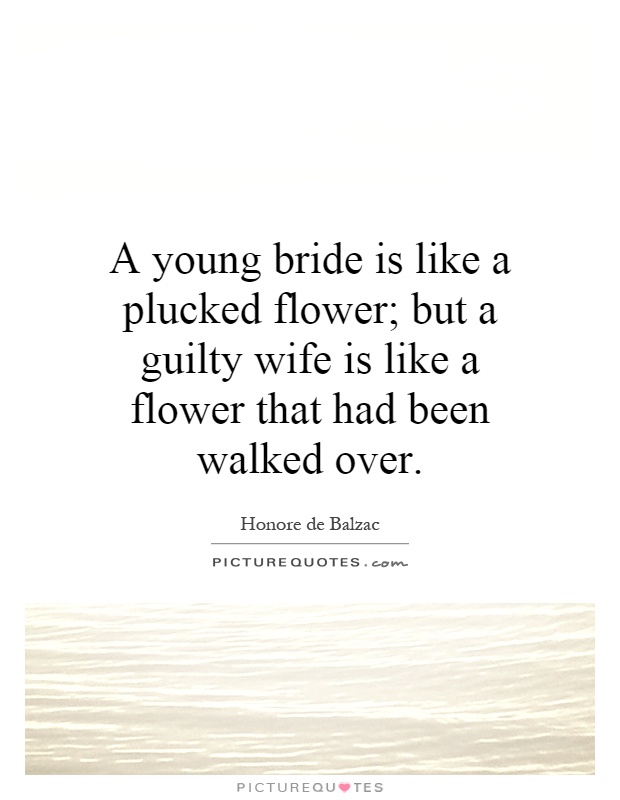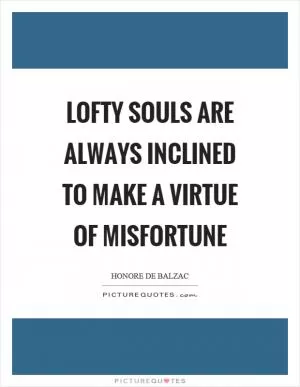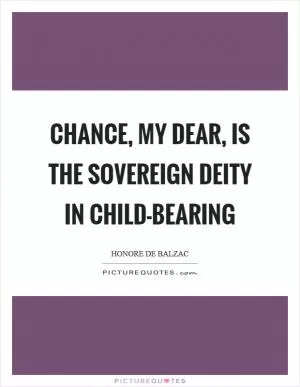A young bride is like a plucked flower; but a guilty wife is like a flower that had been walked over

A young bride is like a plucked flower; but a guilty wife is like a flower that had been walked over
In the world of Honore de Balzac, a young bride is often seen as a delicate and innocent creature, much like a plucked flower. She is fresh, pure, and full of potential, much like a flower that has just been picked from the garden. However, as time goes on and the realities of marriage and life set in, that young bride can quickly transform into a guilty wife, much like a flower that has been trampled on and crushed underfoot.Balzac's works often explore the complexities of human relationships, particularly those between men and women. In his novel "Eugenie Grandet," for example, the character of Eugenie starts off as a young and innocent bride, full of hopes and dreams for her future. However, as she navigates the challenges of her marriage to the miserly and controlling Felix Grandet, she begins to feel trapped and suffocated by her circumstances. She becomes a guilty wife, burdened by the weight of her husband's expectations and the limitations of her own choices.
Similarly, in "Lost Illusions," Balzac portrays the character of Lucien de Rubempre, a young poet who marries a wealthy widow in the hopes of advancing his career. At first, Lucien is enamored with his new bride and the opportunities she presents. However, as he becomes entangled in a web of deceit and betrayal, he begins to feel the weight of his guilt and the consequences of his actions. His wife, once a symbol of his ambition and desire, becomes a reminder of his own moral failings and shortcomings.












 Friendship Quotes
Friendship Quotes Love Quotes
Love Quotes Life Quotes
Life Quotes Funny Quotes
Funny Quotes Motivational Quotes
Motivational Quotes Inspirational Quotes
Inspirational Quotes